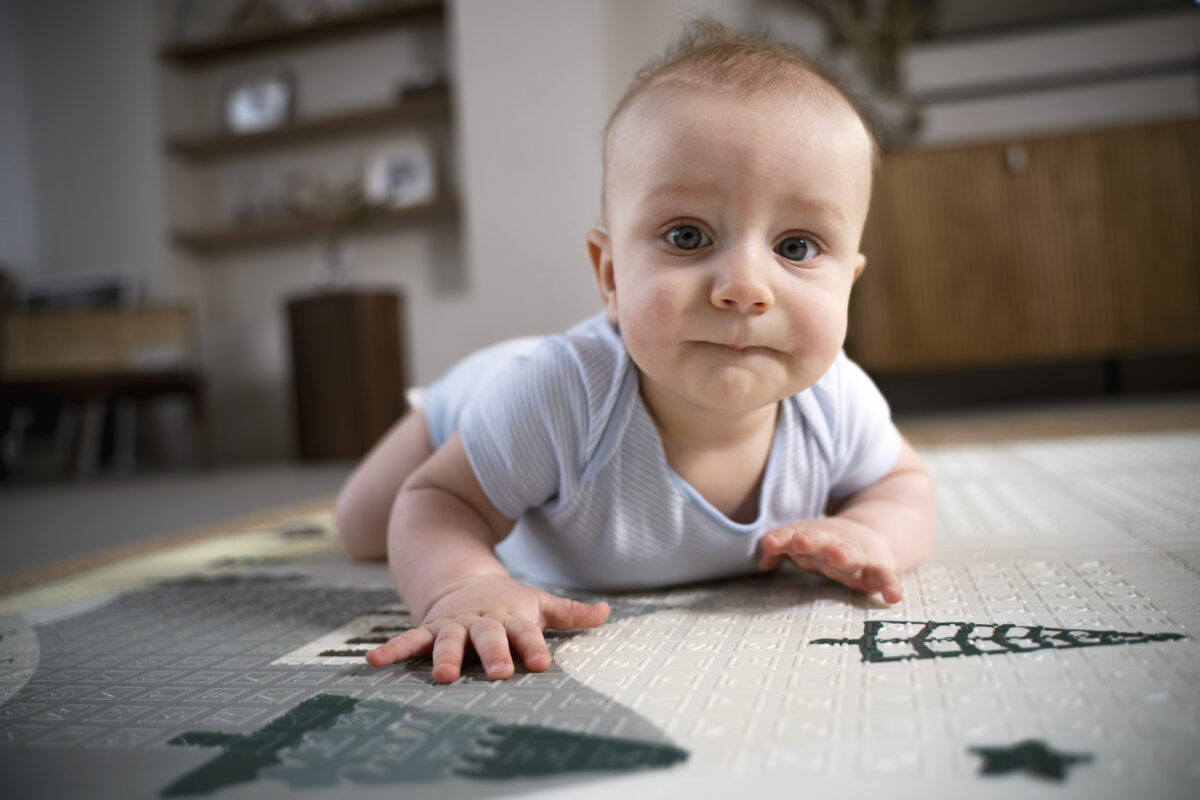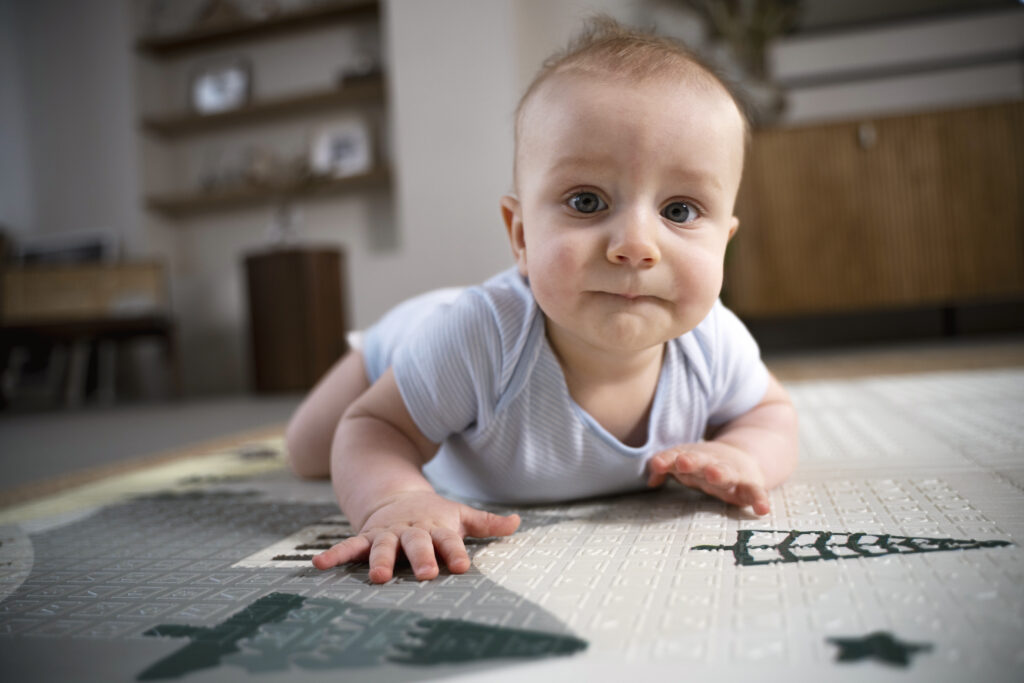
Babies Learn Like AI: New Insights Into Early Brain Development
A groundbreaking study from Trinity College Dublin reveals a new perspective on early human brain development. It challenges the long-held belief that newborns are cognitively underdeveloped. Researchers now suggest that babies use their “helpless” period to build foundational learning models, similar to the ones found in AI systems like ChatGPT. This discovery changes the understanding of infant helplessness and early learning.

Note: This article is intended for general information and educational purposes. It summarizes scientific research in accessible language for a broad audience and is not an official scientific press release.
For years, experts believed that babies were born with underdeveloped brains, leading to their dependence on caregivers. However, this new study, published in Trends in Cognitive Sciences and ScienceDaily, offers evidence that infants are active learners from birth. Instead of passively waiting to develop, babies are constantly gathering sensory information to understand the world around them.
Lead researcher Professor Rhodri Cusack (Professor of Cognitive Neuroscience, and lead author of the paper) and his team used advanced neuroimaging techniques to observe infants’ brain activity. Their findings show that baby brains are not as immature as once thought.
How the Study Was Conducted
Researchers took an interdisciplinary approach, combining neuroscience and artificial intelligence to understand infant development. They collaborated with experts from DeepMind and Auburn University. Using neuroimaging, they tracked brain activity in infants to see which areas were active. Surprisingly, several brain systems function during early infancy, challenging the belief that babies are cognitively limited.
This study also included cross-species comparisons through the “Translating Time” project. The researchers looked at brain development in animals, noting that species like horses walk shortly after birth. In contrast, human infants remain physically helpless. But while animals are born ready to move, human babies use their extra time to build complex cognitive models.
Professor Christine Charvet from Auburn University, an expert in cross-species brain development, points out, “Although animals like horses can move right away, human infants are developing more sophisticated cognitive abilities during their early months.”
Previous Studies on Infant Development
Past research often portrayed human babies as born too early due to the large size of their brains and heads. This led to the belief that infant helplessness was a result of their brains still needing time to grow. Studies dating back to the 1960s suggested that early development was marked by cognitive limitations.
However, this latest study challenges that idea. It shows that babies use their early “helpless” phase not as a disadvantage but as a time for foundational learning. Instead of just waiting to grow, babies are actively learning, much like how AI systems gather data during pre-training.
Dr. Marc’Aurelio Ranzato, a senior AI researcher at DeepMind, adds, “We previously assumed babies’ helplessness was due to brain immaturity, but we now understand they are using this time to gather sensory data, much like AI models during their learning phases.”
Five Key Findings from the Study
- Infants’ brains are more developed than we thought: The neuroimaging data revealed that many areas of the brain are already functional in early infancy. Babies are actively processing sensory input from their surroundings.
- Babies are building cognitive models like AI systems: Infants use their “helpless” period to create internal models that help them understand the world. These cognitive models function similarly to AI pre-training phases, where systems like ChatGPT process large amounts of data to generalize and learn.
- The helpless phase is a developmental advantage: While some animals are born with physical abilities, human infants spend their helpless period building more complex cognitive models. This gives them an advantage in learning and adapting to their environment later in life.
- Infants are highly efficient learners: Unlike AI models, which require massive amounts of energy and data, human babies achieve the same kind of foundational learning with fewer resources. This finding could inspire new approaches to AI, aiming to make machines learn more efficiently.
- The study reshapes our understanding of early brain development: Babies are not limited by their brain’s immaturity. Instead, they are making the most of their early months, gathering essential information that will support future cognitive development.
Implications for Health and Science
This research shifts the way we think about early childhood development. Infants, who were once considered passive and dependent, are now seen as active learners. This opens up new possibilities for early educational interventions. Understanding that babies are already gathering data from their surroundings could improve programs designed to stimulate early brain development.
From a technological standpoint, the findings offer new insights for AI development. Current AI systems, like ChatGPT, require significant computing power and resources. Babies, on the other hand, learn efficiently with fewer resources. AI researchers could use this insight to create more energy-efficient models that mimic human learning.
As Professor Cusack explains, “Human infants are far more efficient learners than today’s AI systems. By studying how their brains build foundational models, we could guide the future development of AI.”
The Future of Early Childhood Research
This study marks a turning point in how we understand infant development. Babies, far from being helpless, are actively using their early months to build cognitive frameworks that will serve them throughout their lives. This challenges long-standing ideas about brain development and offers a fresh perspective on how infants learn.
The next steps in research will likely focus on how babies build these models. If we can better understand how human infants learn with such efficiency, it may lead to breakthroughs not only in neuroscience but also in AI. Babies could be the key to unlocking more efficient machine learning processes, and their learning methods might shape future AI models.
Human babies may be the ultimate learning machines, using their “helpless” phase to create cognitive foundations that will last a lifetime.
The information in this article is provided for informational purposes only and is not medical advice. For medical advice, please consult your doctor.














